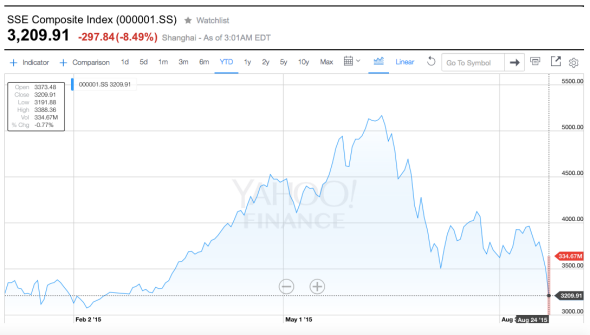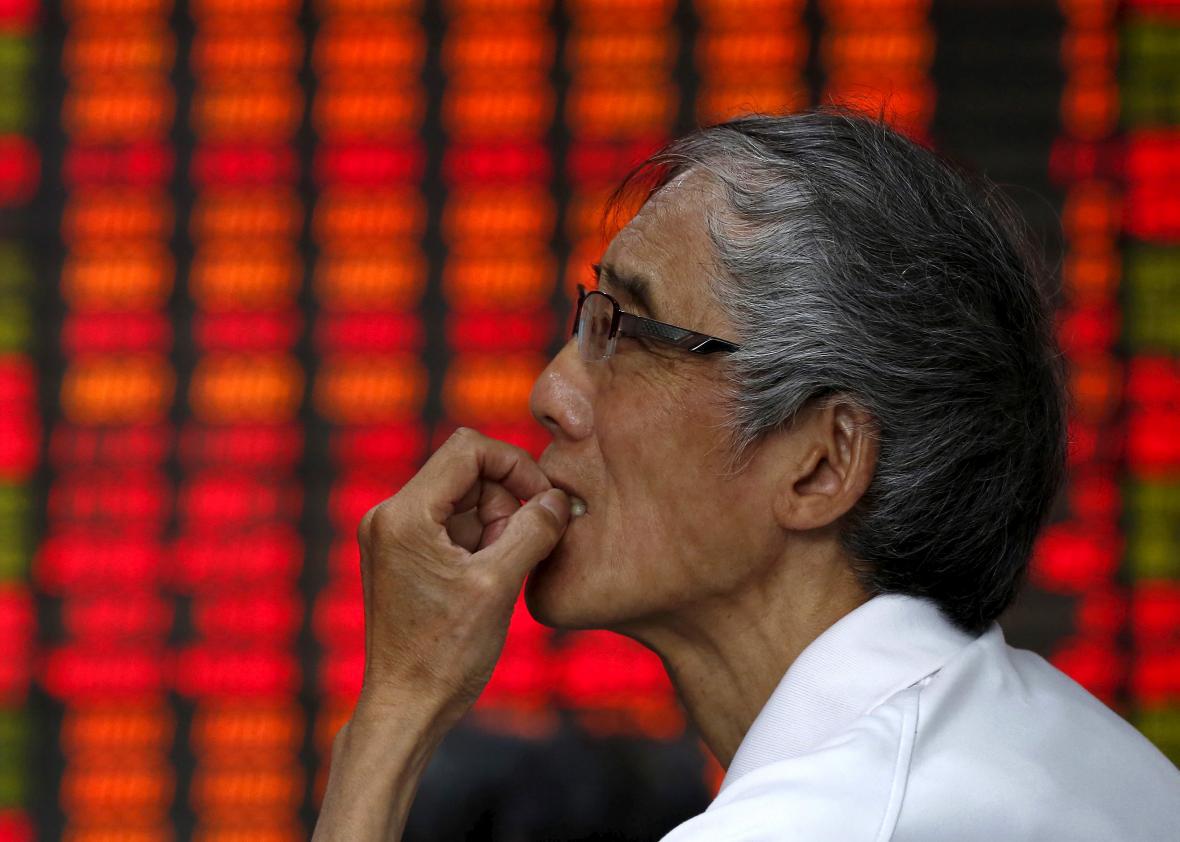Friday was a rout in the stock markets; Monday is already looking worse. The Shanghai Composite index tumbled 8.5 percent—erasing the last of its gains for the year in its biggest single-day loss since 2007. European stocks have plunged nearly 5 percent. U.S. stocks nosedived at the opening bell: The S&P 500 fell 99.1 points or 5.03 percent, the Dow sank 991 points or 6.02 percent, and the Nasdaq pitched 335 points or 7.12 percent. There is only one word for all of this, and it is yikes. Brent crude, the benchmark for oil prices worldwide, is trading below $45 a barrel for the first time in six years. Even gold, so often a “safe haven” commodity that investors pour money into during periods of economic uncertainty, is being weighed down.

Yahoo Finance
What’s behind the apparent panic in the global economy? Mostly China. Over the past two weeks, China’s currency fell in value more than it did in the previous two decades. On top of that, all the recent economic data coming out of China seems to fundamentally contradict official reports of the country being on track for 7 percent growth. Investors and analysts have long questioned the accuracy of economic statistics produced by the Chinese government, so seeing those figures can’t have been entirely surprising. But it’s only recently become clear how big the gap between official reports and China’s economic reality might be. And the bigger that gap, the greater the ramifications could be worldwide. In recent years, China has accounted for up to half of global growth, though it makes up just 15 percent of global output.
Per the Wall Street Journal, China is looking into stimulus measures:
The expected move to free up more funds for lending—by reducing the deposits banks must hold in reserve—is directly aimed at countering the effects of a weaker currency, which could send more funds away from Beijing’s shores. The moves reflect an economy increasingly failing to cooperate with Chinese leaders’ playbook to control the world’s No. 2 economy.
The Journal says this could happen by the end of August or in early September, most likely via a half-percentage-point reduction in reserve-requirement ratios for banks. Another possibility is to just loosen the reserve requirements for banks that lend primarily to small and private businesses. China’s entrepreneurs have been stifled by the risk-averse tactics of many banks, which prefer to lend to state-owned companies than private, potentially higher-growth enterprises. Theoretically, stimulating that kind of private-sector growth would be better for China in the long run than falling back on exports, its traditional economic mainstay. (The leading theory for why China’s central bank devalued the yuan is that it was trying to prop up exports.) At the same time, as the Journal notes, these new “would-be drivers of the economy—high technology and entrepreneurship—aren’t filling the gap quickly enough.” In the meantime, expect a lot of turbulence in the global markets.
